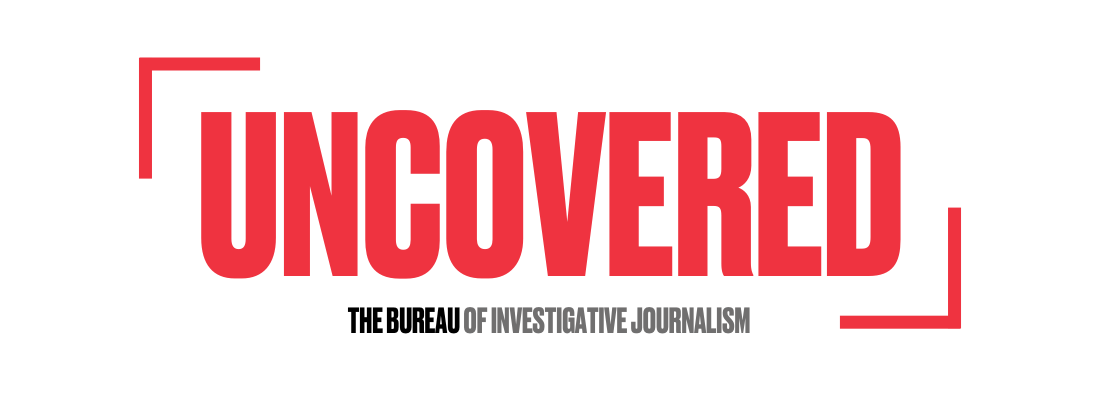
“The bottom line is that Del Monte must re-evaluate its security strategies. They are not working. Rather, they are promoting egregious abuses of human rights.”
Hi {{ First name | there }},
Warning: the following story contains details of violence, including deaths
We have a breaking story this morning: two men have been killed in separate incidents in the past week at Del Monte’s troubled pineapple farm in Kenya.
This week, our reporter and impact producer Grace Murray received horrific photos from the scene of a police shooting, the second death in a week after another man was knocked off a motorbike while riding through the farm.
The latest deaths are a worrying flareup in the violence that has often surrounded Del Monte’s operation in Thika, Kenya. We first exposed the history of violence, including several deaths allegedly at the hands of Del Monte security staff, two years ago.
In response, many British supermarkets stopped stocking Del Monte’s Kenyan pineapples, although those products can still be found for sale at Sainsbury’s and Morrisons. The fruit company also put the global security giant G4S in charge of its security operation to try to professionalise the whole thing.
So it’s worrying that it was a G4S employee driving the pickup truck that ran over Michael Muiruri Murigi on August 8.
Another man was shot as police tried to quell violent protests at the farm following Muiruri’s death.
In a statement, Joe Nyutu, a senator for Murang’a county, condemned the two deaths, referring to them as “cold-blooded killings”. He said they were part of a “long and shameful history of human rights violations on Kenyan soil by a multinational company.”
Del Monte and G4S didn’t comment.
We started reporting on Del Monte’s failings back in 2023, and we’re committed to making sure these stories are heard.
From forced labour in China to human rights violations in Kenya, TBIJ has exposed the brands we use every day for their exploitative and sometimes violent methods. We go where the story takes us, wherever that may be.
But we need your help to keep going, and make sure communities are armed with the facts they need to hold these giant corporations accountable. Could you chip in a few pounds a month and support us today?
Have your say on TBIJ
We’re currently running our TBIJ annual survey, and we’d love for you to get involved!
Why take part? Well, it gives you the opportunity to tell us what you value about our work, and what you’d like to see more of too.
Click the button to take part – it’ll take just a few minutes.
A crisis of confidence in Indian pharmaceuticals
TBIJ has spent years investigating bad medicines around the world, but one country comes up again and again: India.
India is referred to as the “pharmacy of the world”. The chances are, wherever you live, some of the drugs that you or your family take are made in India. That’s everything from chemotherapy to paracetamol. It’s particularly true for “generics”, drugs that are off-patent, which manufacturers can legally copy and sell more cheaply.
India’s thriving generics industry has allowed many more people around the world to afford modern medicines, and Delhi is not alone in seeing it as a great success story. Generally, the drugs are regarded as high quality and cost-effective. But not all of them are. And scandals, from our investigation into poor-quality cancer drugs, to cough syrups that killed children, have dogged the Indian industry.
You can’t mess about with medicines. A drug must be the correct strength. There can’t be any dangerous contaminants. It must be exactly what it says it is on the packet; after all, medicines are administered to people who are already sick.
So how on earth are potentially dangerous drugs reaching patients? The Indian drug regulator, the CDSCO, is overwhelmed and understaffed. It is trying to recruit, aware that India’s international reputation has been tarnished.
The situation wasn’t helped by the CDSCO’s response to the cough medicine scandal that killed children around the world. It initially disagreed with the work of international experts and said its own tests had found nothing wrong with the medicines. But something was seriously wrong.
The World Health Organization (WHO) has estimated that at least 1 in 10 medicines in low- or middle-income countries fail quality tests – wherever they are manufactured, not just those from India. This can mean serious health risks and even death. But the situation is worsening – the WHO said the number of reported substandard and falsified incidents had doubled over the four years up to 2023.
The UK has strong medical regulation, but the growth of online pharmacies has raised concern that bad drugs are getting past borders. Still, it’s countries with weaker regulations that are at the greatest risk. Regulators in some countries don’t have the resources to test many of the drugs they import.
The sheer volume of poor quality drugs has started an official backlash. In January, the Kenyan authorities banned medicines that used Indian quality standards, rather than other international bars. That doesn’t mean all Indian-made drugs can’t be used in Kenya, but it’s a sure sign of a loss of confidence in the pharmacy of the world.
Factchecked!
Each week we reveal a fascinating fact from our reporting…
Did you know?
In 1963, the son of Winston Churchill instructed British lawyer Peter Carter-Ruck to sue Private Eye, a satirical news magazine, over its suggestion that his forthcoming biography of his father would gloss over accusations that Chuchill had been reckless with British soldiers’ lives.
Find out more
Carter-Ruck threatened not only the editor but “all those concerned with the production of Private Eye”.
The Churchill case gave Carter-Ruck a taste for claimant work. By the 1980s he established his firm, Carter-Ruck (styled as “Carter-Fuck” by Private Eye), and set about transforming libel into a lucrative industry.
Carter-Ruck has since become one of Britain’s “most feared” libel firms.
There’s still time to join our next UK investigation
One of the challenges of investigative journalism is that it takes time, and lots of it. Most of this time is spent quietly squirreling away in the background: following leads, speaking to experts and sources and data gathering – which usually involves sending lots of requests for information, waiting, appealing denials, waiting some more, then sending them all over again. You don’t see that part in the movies.
For the past few months our Bureau Local team have been working to build the first set of stories for our project looking at employment tribunals in the UK.
Back in March we published a callout (in eight different languages) asking for people who have faced an employment tribunal to share their stories. More than 100 people have reached out so far, with more getting in touch every week. Their lives and experiences are diverse, but clear themes have emerged. We’ve got a good idea now of the challenges that so many people are facing in accessing support and accountability after facing injustices at work.
We’ve also been speaking to frontline caseworkers, lawyers, academics, union organisers, campaigners and charities to find out what the most important systemic issues are. And we’ve been delving into thousands of recent employment tribunal judgements.
This comes at a vital time, as the government’s Employment Rights Bill progresses through parliament. This law will create new workers’ rights, but it must also enable a system which can uphold them. When parliament returns from its summer break, our stories will shine a light on areas where much more needs to be done. Watch this space.
If you’d like to contribute your story to the employment tribunals project, there’s still time to get in touch.
Who’s influencing the world’s politicians? Find out with openDemocracy.
The award-winning investigative journalists at openDemocracy go beyond headlines to uncover the hidden forces shaping policy and politics in the UK and beyond.
openDemocracy has recently revealed the network of lobbying groups restricting rights in Latin America, and how the British Army denied justice to a child abuse victim for 22 years.
From exposing opaquely-funded lobbyists to highlighting the risks of outsourcing policy-making to private corporations, openDemocracy stands as a testament to transparency and accountability.
Stay up to date with openDemocracy’s investigative team by signing up for our weekly newsletter here.
What we’ve been reading
🔴 Medical records, doctors’ testimony, bullets and visual evidence show a pattern of Israeli shootings at food distribution sites in Gaza theguardian.com
🔴 Internal guidelines for Meta’s AI chatbots said that the bots could have sensual and romantic conversations with children reuters.com
🔴 How a former British officer uncovered corruption in Saudi arms deals that was ultimately authorised by the UK’s Ministry of Defence theguardian.com
🔴 Burst pipes and flooding at a nuclear bomb store have polluted Loch Long in Scotland with radioactive waste theferret.scot
Thanks,
Franz
Franz Wild
Editor

ADVERTISEMENT
The back office, built for founders
We’ve worked with over 800 startups—from first-time founders at pre-seed to fast-moving teams raising Series A and beyond—and we’d love to help you navigate whatever’s next.
Here’s how we’re willing to help you:
Incorporating a new startup? We’ll take care of it—no legal fees, no delays.
Spending at scale? You’ll earn 3% cash back on every dollar spent with our cards.
Transferring $250K+? We’ll add $2,000 directly to your account.






